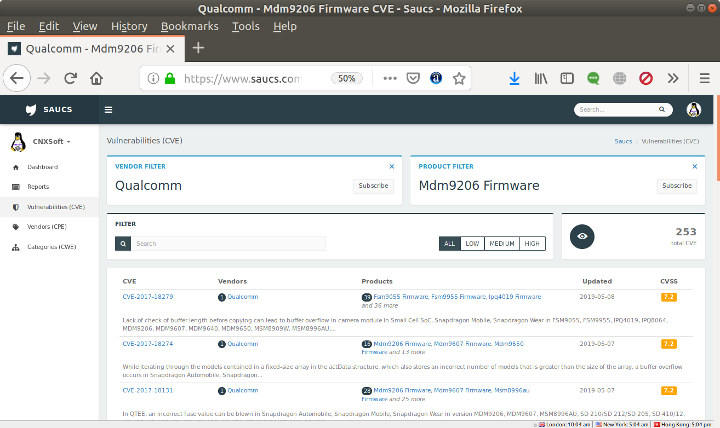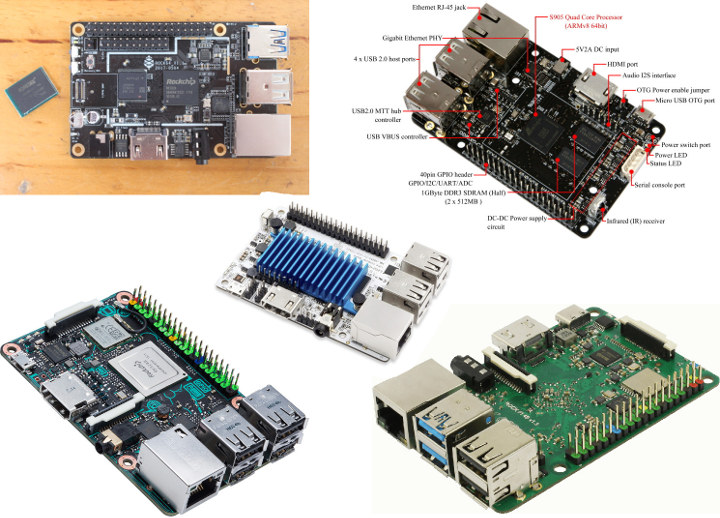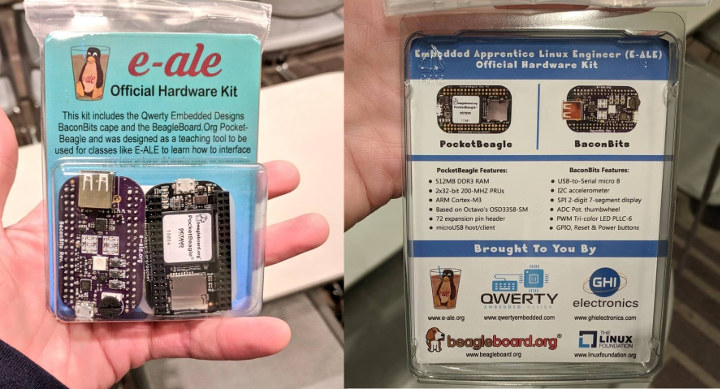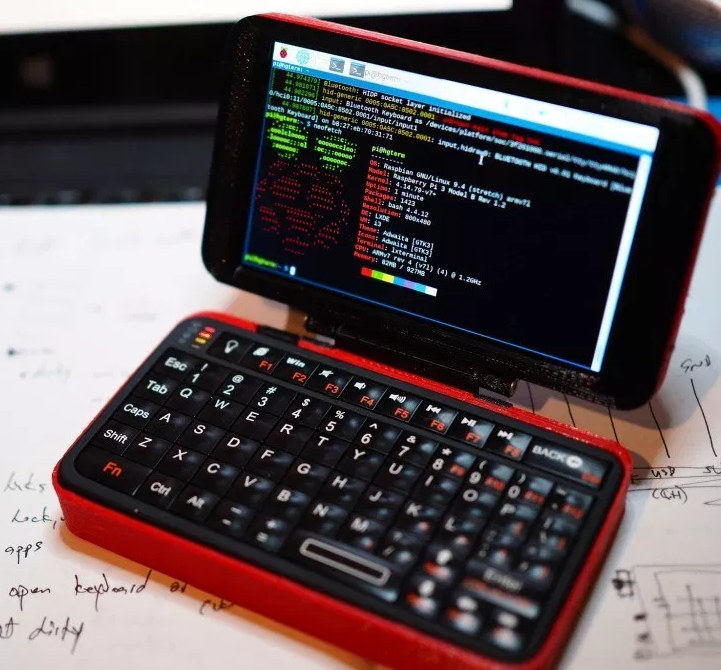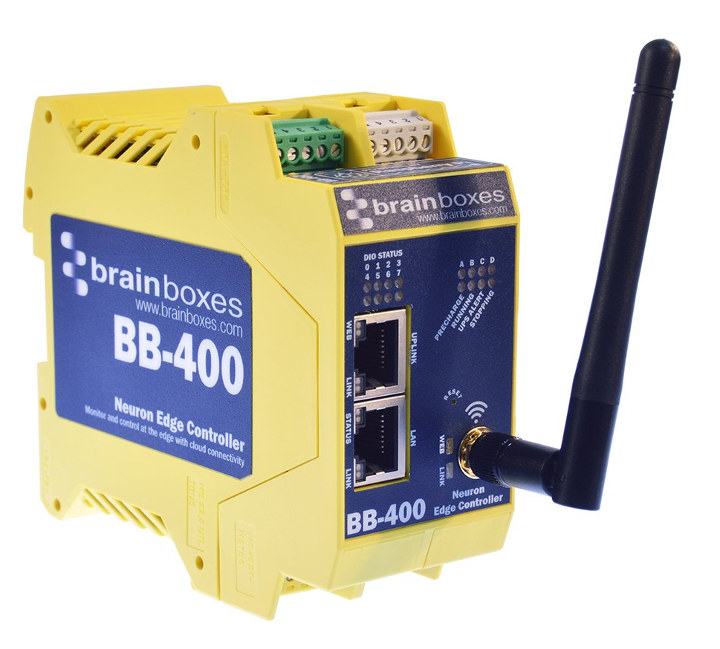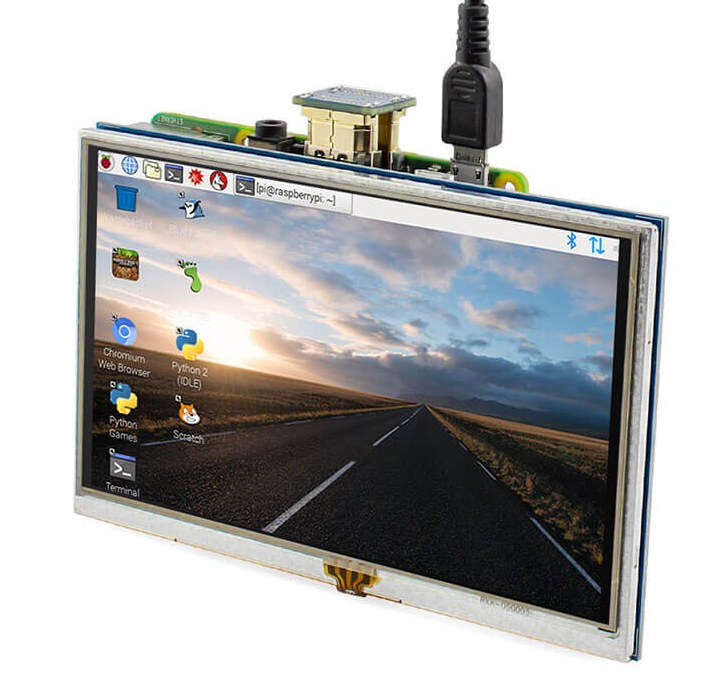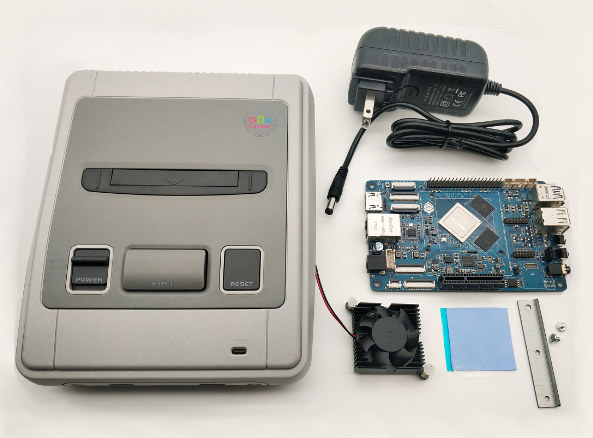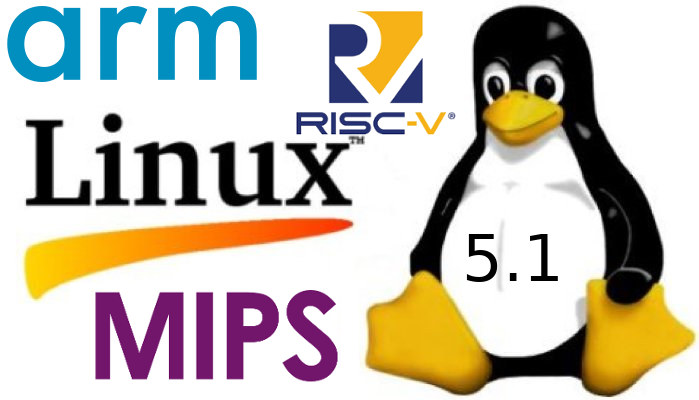Every so often we hear about critical security vulnerabilities in the news, but new ones are actually discovered daily, so it would be nice to have some sort of search engine to find out which known security vulnerabilities a given product or processor may have before purchasing it, or even more importantly starting a project. SAUCS does just that by having robots checking out the CVE update list, parsing the XML feed and formatting it. You can search for products or process, or subscribe to the vendors and products you want, and receive an email as soon as new changes as detected. I found out about SAUCS thanks to a comment from Thomas who pointed out the Qualcomm MDM9607 processor found in Quectel EC25 LTE module had a fairly long list of CVE (Common Vulnerabilities and Exposures) entries while using the default? firmware as shown in the screenshot above. Each […]
Top 5 Raspberry Pi Alternatives in 2019
The Raspberry Pi boards are great little Arm Linux SBC’s with a low price and great community support. But the Broadcom processors used in the boards are also fairly old so they may not be suitable for some projects. If your application needs or would benefit from modern features such as memory over 1GB RAM, an actual Gigabit Ethernet port, USB 3.0 port(s), 4K video output, or H.265 hardware video decoding you’ll have to find Raspberry Pi alternatives. I’ll point out 5 alternative single board computers in this post from the point of view of existing Raspberry Pi users, who will want good software support and a board with the same or similar form factor as Raspberry Pi 3 Model B/B+ in order to reuse their add-on boards and/or enclosures. Price has to be competitive as well, so nothing above $80 will be mentioned. The boards are not listed in […]
E-ALE is a Free & Open Source Linux Training Program for Embedded Engineers
As I wrote about the Embedded Linux Conference 2019 schedule a few days ago, I found out one of talk planned to use E-ALE hardware kit for the session. I had never heard about this kit, but a quick search led me to e-ale.org website which explains E-ALE stands for Embedded Apprentice Linux Engineer. The training program is made for embedded engineers with experience designing firmware for microcontrollers, but now need to transition to embedded Linux. Training only happens in-person (no webinar) at existing Embedded Linux conferences and is comprised of 8 to 9 seminars over 2 to 3 days. It usually starts with a presentation on one subject, followed by lab time to practice the relevant learned skills. The training takes place on the E-ALE kit at each conference, but it does not refer to a specific hardware platform. In most conferences, the PocketBeagle and BaconBits add-on board are […]
Raspberry Pi based Hyper Keyboard Pi & hgTerm Handheld PCs, and RasPi Arcade Stick
There are so many products and projects based on Raspberry Pi that it’s difficult to keep track, and many are often not that interesting, not because they are not useful, but instead because it just feels we’ve seen those before. But this week I’ve come accross three projects that looks to be newsworthy including two handheld computers with a 4″ display, and one retro-gaming console with standard arcade buttons and controls similar to what is found in Pandora’s Box/Key 5S. hgTerm DIY Raspberry Pi Handheld Computer hgterm is a portable computer based on a stripped down Raspberry Pi 3 where the Ethernet port, HDMI port, and most of the USB ports have been removed. It features a 4″ touchscreen display, a Bluetooth keyboard all housed in a 3D printed case. It’s not actually a product that you can buy (yet), but a project made by Igor Brkić which you can […]
BB-400 Neuron Edge Dual Ethernet Industrial Controller Combines Raspberry Pi CM3+ and Arduino MCU
While the Raspberry Pi boards are mostly promoted as tools to teach STEM to kids and adults alike, they have found their way in a fair amount of industrial products, including ModBerry M500 industrial computer, Janz Tec emPC-A/RPI3 industrial embedded controller, and Kunbus RevolutionPi RevPi Core among others. There’s yet another option with Brainboxes BB-400 Neuron Edge industrial controller that was announced last year with Raspberry Pi Compute Module 3, but recently got an upgrade to Raspberry Pi Compute Module 3+. The controller features two Ethernet ports and also includes an Arduino compatible microcontroller to control the system’s eight configurable digital inputs and outputs. BB-400 Neuron Edge industrial controller specifications: SoM – Raspberry Pi Compute Module 3+ with Broadcom BCM2837B0 quad-core , Cortex-A53 processor @ 1.2GHz, 1 GB LPDDR2, 32GB eMMC Flash storage MCU – Unnamed Microchip Atmel Arduino compatible microcontroller Connectivity Ethernet Uplink Port – 1x RJ45 jack, 10/100Mbps […]
$40 Elecrow 5″ HDMI Raspberry Pi Display Features Backlight Control, a Resistive Touch Panel
There are plenty of small touch screen displays for Raspberry Pi board, including the official 7″ display that connects to the board’s MIPI DSI connector. Some people may prefer getting a small HDMI display however, as it can be used with most devices with an HDMI input port, and the touch screen function may be achieved over USB, I2C or SPI depending on the design. Elecrow has just launched a new 5″ HDMI display with resistive touch screen designed for the Raspberry Pi boards, and whose main feature is to support backlight control over GPIO 11 in order to lower power consumption according to the announcement tweet from the company. Specifications for RPD19048A display: Screen – 5″ TFT resistive touch screen display with 800×480 resolution @ 60 Hz; LCD Driver IC – Display Future ILI9486L (Likely wrong as this only supports 480×320 resolution) Touch controller – XPT2046 4-wire resistive […]
Roshambo Retro Gaming Console Kit Features Rock64 or RockPro64 Board
Recalbox, Lakka TV, Retro Arena, and Batocera are some of the retro gaming distributions optimized to run on development boards. You can install those by yourself, and enclose the board is any case, but if you want something more fancy, Cloud Media is now selling Roshambo retro gaming kit based on Rock64 (RK3328) or RockPro64 (RK3399) SBC’s. Roshambo and RoshamboPro retro gaming kits are compatible with respectively Rock64 and RockPro64 boards, come with a shell with carrier board, power supply, cooling fan (Pro model only) and support cables. The kits support 256GB or 512GB SSD cartridges provided by the company, and optional game controllers with analog triggers and buttons are also available for purchase. Pine64 Rock64 / RockPro64 boards are compatible with Recalbox, Lakka TV, Retro Arena, and Batocera distributions, but bear in mind ROMs are not provided, so you’d have to install your own, or play free games only. […]
Linux 5.1 Release – Main Changes, Arm, MIPS & RISC-V Architectures
Linus Torvalds has just announced the release of Linux 5.1: So it’s a bit later in the day than I usually do this, just because I was waffling about the release. Partly because I got some small pull requests today, but mostly just because I wasn’t looking forward to the timing of this upcoming 5.2 merge window. But the last-minute pull requests really weren’t big enough to justify delaying things over, and hopefully the merge window timing won’t be all that painful either. I just happen to have the college graduation of my oldest happen right smack dab in the middle of the upcoming merge window, so I might be effectively offline for a few days there. If worst comes to worst, I’ll extend it to make it all work, but I don’t think it will be needed. Anyway, on to 5.1 itself. The past week has been pretty calm, […]


